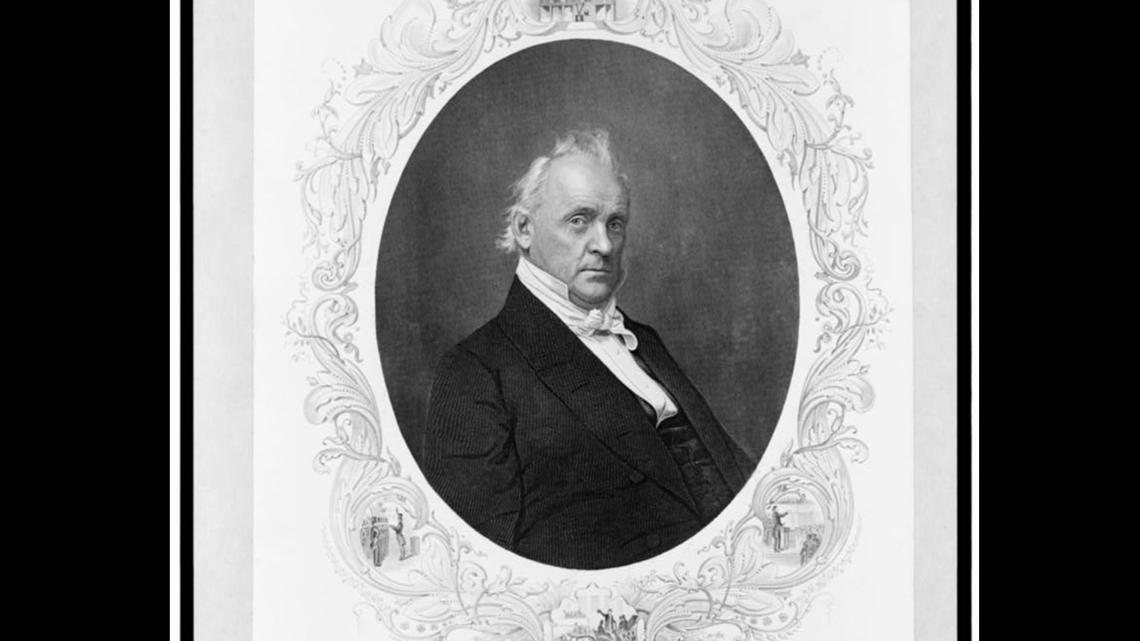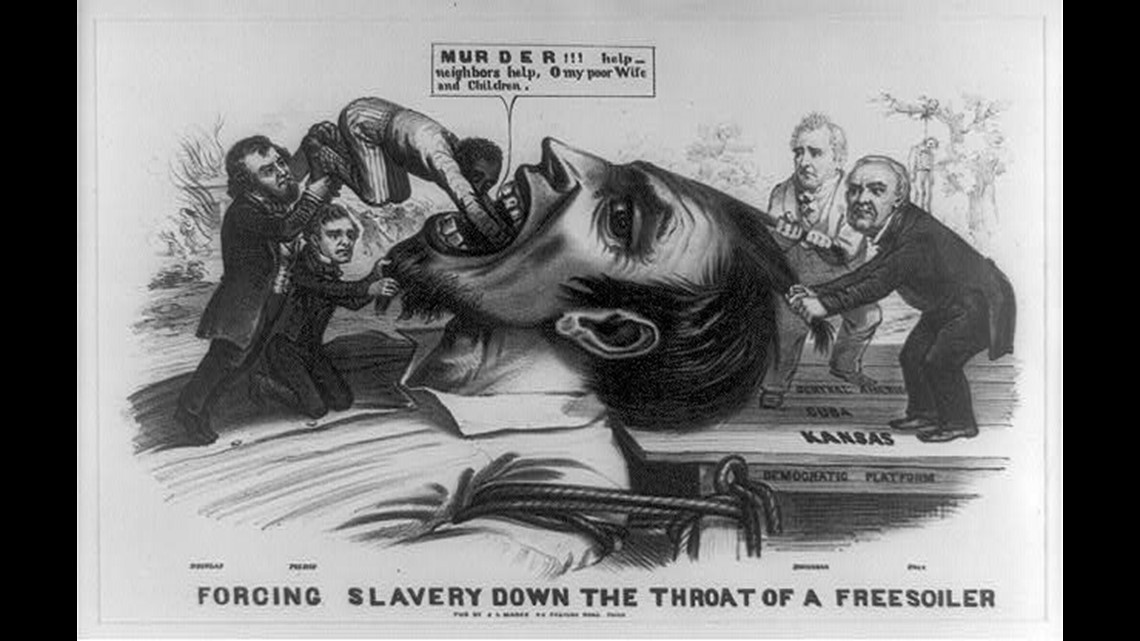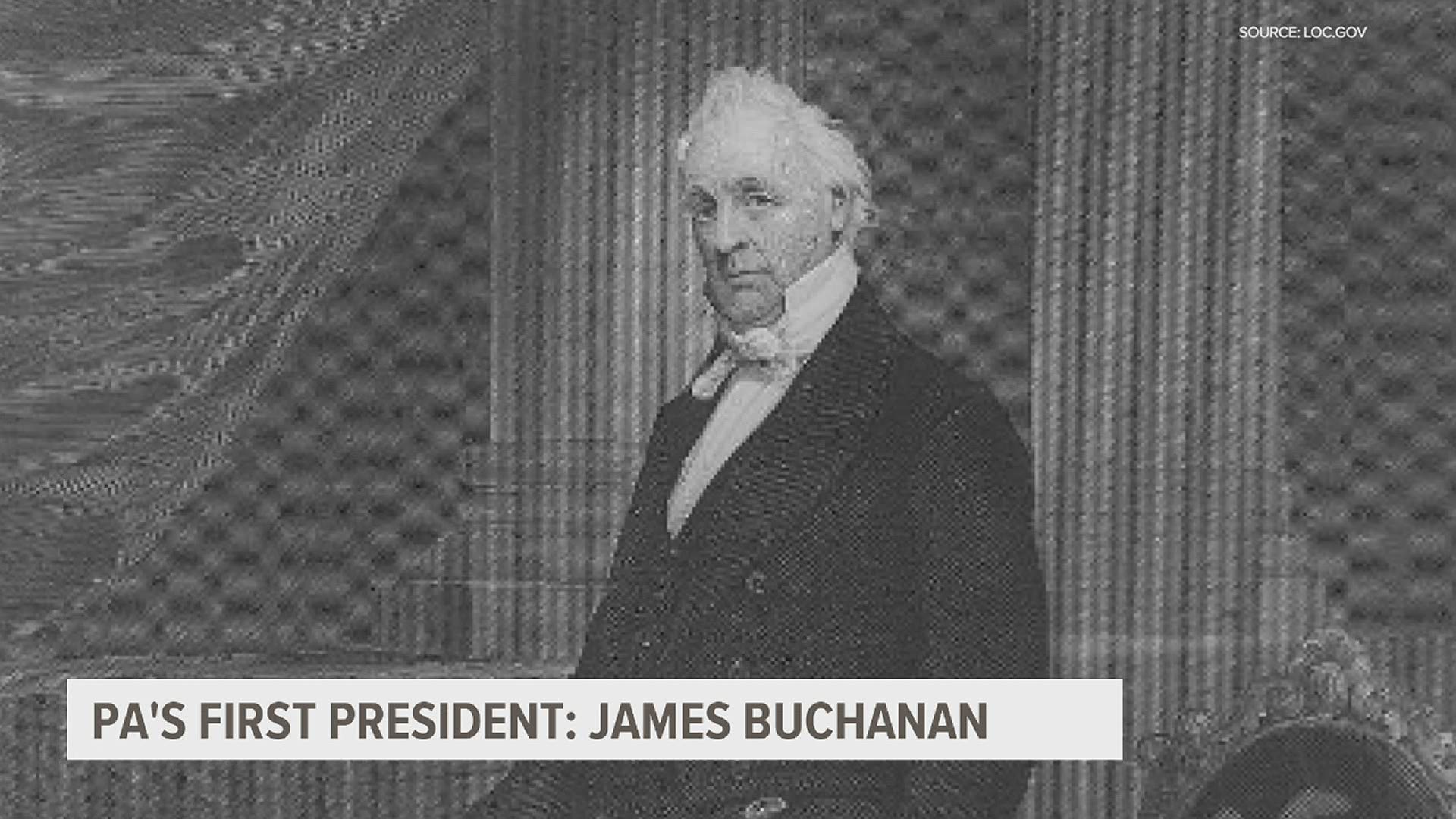LANCASTER, Pa. — Pennsylvania claims “home state” status for President Joe Biden, who was inaugurated Jan. 20.
Biden is in fact the second president born in the Keystone State. The first was President James Buchanan, who was in office from 1857 to 1861.


Though Biden and Buchanan both came into power during a time of national division, the former may learn a lesson from the mistakes of the latter.
“It’s a troubled, sad legacy. [Buchanan] tried to save the country but he made things worse,” said Matthew Pinsker, history professor at Dickinson College.
Buchanan was born in Cove Gap, a town in Franklin County. He attended Dickinson College in Carlisle and later lived at his Wheatland estate in Lancaster County.
He became president in 1857, amid a period of rising tensions in America.
The country was debating the issue of slavery while expanding Westward. Each state brought into the Union had to decide whether to join as a slave state, where slavery was legal, or a free state, where slavery was illegal. In 1857 there were 16 free states and 15 slave states.


The Kansas Territory in particular became a battleground between pro-slavery and “Free-Soil” anti-slavery settlers. The disagreement led to several violent confrontations eventually known as the “Bleeding Kansas” period. The issue was further elevated when the territory sought to became a state, as another slave state could change the national balance of power between free states and slave states.
“The United States in the 1850s was a bitterly divided place… As bad as things feel today, they were worse back then,” Pinsker said.
Buchanan was a member of the Democratic Party, which looked much different than it does today.
“The Democratic Party was more of a states’ rights party, less committed to federal government, kind of a believer in agriculture,” Pinsker said. “The Republican party at the time was more inclined to believe in strong central government, federal investment and control of the economy, and the growth of business.”
Though Buchanan was not a slaveholder, he tended to favor Southern policies. He supported the Dred Scott Supreme Court decision to ban Black people from citizenship, and wanted Kansas to enter the Union as a slave state.
Buchanan’s appeasement of powerful Southern slaveholders made him unpopular with many Northerners, eventually helping to elect Abraham Lincoln, a Republican, as the next president.
“That convinced Southern states that they had no future in the country,” Pinsker said.
The Civil War erupted within two months of Buchanan’s retirement.
The political backlash against Buchanan began while he was still in office. Congress attempted to impeach him, and later censure him after he left office.
Buchanan spent the rest of his life in Wheatland, out of favor.
As President Biden starts his term, he may consider why Buchanan was unable to bring the country together.
Buchanan, however, was a tactical politician who didn’t connect well with the public, while Biden is seen as more empathic. That difference in approach may help the current president unite the country where the other couldn’t.

